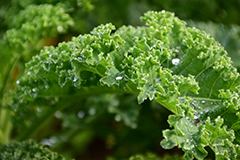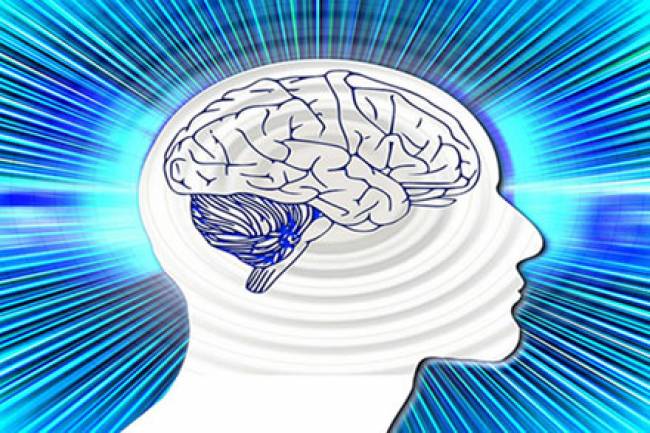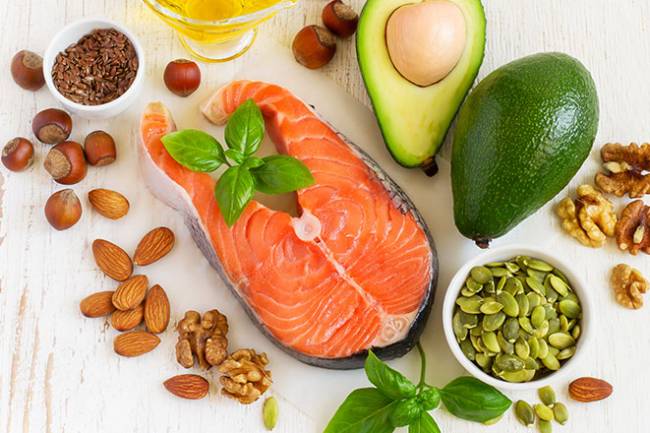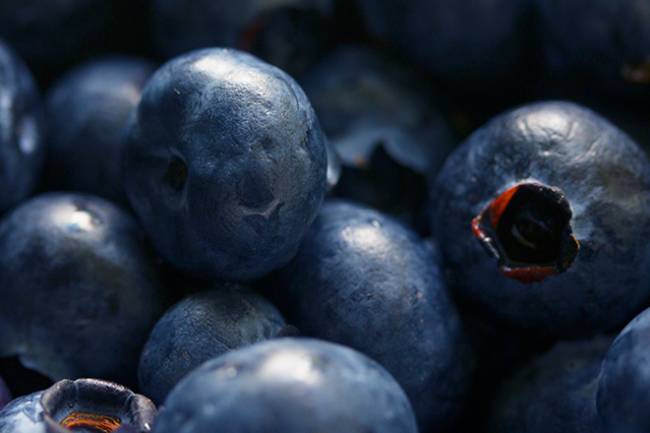The MIND Diet Components

Although cancer, heart disease and diabetes are the health issues that constantly grab newspaper headlines, there is another devastating condition to add to that trio: dementia. Dementia, which affects almost 1 million people in the UK, is the umbrella term used to describe a range of progressive diseases that negatively affect the brain and cognitive ability. Alzheimer's is certainly the most widely known form of dementia, but is not the only one.
Parkinson's and Creutzfeldt-Jakob disease are also examples of Dementia. Like most causes of morbidity and mortality in the UK, diet has an important role to play, not only in the prevention, but the management of the condition. For preventing or slowing cognitive decline, leading researchers have developed a pattern of eating known as the MIND diet. In this article, we are going to explore what the MIND diet is, what it consists of, what the research says and some examples of MIND-friendly meals.
What Is the MIND Diet?
 The MIND diet is a hybrid of the lauded Mediterranean diet and the Dietary Approaches to Stop Hypertension (DASH diet) – a pattern of eating that aims to control high blood pressure. This dictated the name of the diet, as MIND stands for the Mediterranean-DASH Intervention for Neurodegenerative Delay. Unlike a lot of diets, the MIND diet is not restrictive and doesn't have a long list of strict rules. It simply encourages the consumption of 10 different foods and discourages 5 more.
The MIND diet is a hybrid of the lauded Mediterranean diet and the Dietary Approaches to Stop Hypertension (DASH diet) – a pattern of eating that aims to control high blood pressure. This dictated the name of the diet, as MIND stands for the Mediterranean-DASH Intervention for Neurodegenerative Delay. Unlike a lot of diets, the MIND diet is not restrictive and doesn't have a long list of strict rules. It simply encourages the consumption of 10 different foods and discourages 5 more.
Components of the MIND Diet
What Can Be Eaten on the MIND Diet?
Below is the list of ten foods you should be focusing on when following this diet and how often they should be consumed:
- Green leafy vegetables – At least one portion per day.
- Other vegetables – At least one portion per day.
- Wholegrains – Three times per day.
- Berries – At least twice per week.
- Fish – At least once per week with oily fish being the best choice.
- Olive oil – Use for cooking and dressings.
- Nuts – A 30g serving 5 times per week. Try and vary the types you consume.
- Legumes – A portion every other day.
- Poultry – At least twice per week and not fried.
- Wine – A single 125-175ml glass per day, preferably red.
Given the nutrient density of these foods, such a diet should ensure you obtain all of the essential vitamins, minerals, fats and proteins your body (and mind) needs. Although there were inevitably regional differences, these are foods that were mostly consumed by the Greeks, Italians and Spanish in the middle of the 20th century – a time when these countries had a very low prevalence of chronic diseases.
What Foods Should Be Avoided on the MIND Diet?
Butter/margarine, cheese, red meat, fried food and pastries/sweets are the 5 food types that should only be occasionally consumed, if at all. These foods have one thing in common; they are high in saturated fat and/or sugar. Although there is much debate with regards to how bad saturated fat and sugar are for our health, they certainly aren't as healthy as unsaturated fats and complex carbohydrates.
The Research Behind the MIND Diet
 Although there will always be advocates of certain diets, more and more people are becoming wise to the ‘too good to be true' nature of most of them. This is because, unfortunately, the impressive claims do not stand up to scrutiny when looked at through a scientific lens. Thankfully, the MIND diet is different, as the foods you will be eating on this plan have some very commendable research to encourage their consumption.
Although there will always be advocates of certain diets, more and more people are becoming wise to the ‘too good to be true' nature of most of them. This is because, unfortunately, the impressive claims do not stand up to scrutiny when looked at through a scientific lens. Thankfully, the MIND diet is different, as the foods you will be eating on this plan have some very commendable research to encourage their consumption.
As the MIND diet has not been around very long there are only a handful of studies into this specific diet. However, we mustn't overlook the fact that this diet is a hybrid of the Mediterranean and DASH diets, which themselves have been heavily investigated and validated. Despite the novelty of the MIND diet, the findings are extremely encouraging, so let's have a look at this evidence and discuss the key findings.
The first investigation of the MIND diet, published in 2014 reported some fascinating findings. It was demonstrated that following the MIND diet was associated with a slower rate of cognitive decline. What was most impressive was the magnitude, as the participants following the MIND diet benefitted from improvements that are equivalent to a brain almost 8 years younger than the participants who didn't follow the diet!
These preliminary findings were reinforced by another investigation the following year that showed those following the MIND diet were over twice as likely to be protected against Alzheimer's than those with a standard western diet. This study was again strong, as it recruited over 900 participants. It was also found that the more you stuck to the diet, the greater its protective effect. However, even only partially adhering to it was still found to have a positive impact.
In 2017, further impressive and complementary findings were published in the Journal of Alzheimer's and Dementia. In a group of 1228 Australians, it was found that the people who followed the MIND diet most diligently reduced their chances of developing Dementia by 46%. The latest study to come out, published in February of this year analysed data of 16,000 women aged over 70. It was found that regularly consuming the 10 recommended MIND foods was associated with better memory and verbal skills later in life. To summarise, all of the current research studies into the MIND diet have reported positive findings.
Although these studies are observational and therefore cannot confidently say that following the MIND diet caused these benefits, scientists are very confident that it plays an integral role. Future randomised control trials, which can prove causality, are in the pipeline. But during the meantime, let's explore the potential mechanisms of why this diet could be of benefit.
Blood Pressure
The DASH (and to a certain extend the MIND) diet has the primary aim of reducing blood pressure, and numerous research studies have shown that among other benefits, it does just that. You may not yet see the relevance of reducing blood pressure, but high blood pressure is a primary risk factor for suffering from a stroke. People who have had a stroke are much more likely to develop Dementia, so ensuring blood pressure is in a healthy range is of primary importance.
The MIND diet encourages the consumption of oily fish and nutrient-dense foods. Oily fish is the best source of the long chain omega-3 fatty acids known as EPA and DHA, which are proven to lower blood pressure. The quality of the diet will also ensure you consume sufficient potassium, calcium and magnesium which are all known to lower blood pressure.
This complements the low amount of sodium, a mineral that is widely known to cause high blood pressure if consumed in excess. By taking these simple measures, you are much more likely to maintain a healthy blood pressure reading. Alongside decreasing the risk of stroke and Dementia, this also reduces the risk of heart disease.
Antioxidant and Anti-Inflammatory
 Leading medical experts are, for the most part, in agreement that chronic inflammation has a role to play in all diseases, with Dementia being no different. Unsurprisingly, following a Mediterranean or DASH diet has been shown to decrease levels of oxidative stress and inflammation in the body. Olive oil, green leafy vegetables, berries and nuts are widely known to be some of the most antioxidant-rich foods around.
Leading medical experts are, for the most part, in agreement that chronic inflammation has a role to play in all diseases, with Dementia being no different. Unsurprisingly, following a Mediterranean or DASH diet has been shown to decrease levels of oxidative stress and inflammation in the body. Olive oil, green leafy vegetables, berries and nuts are widely known to be some of the most antioxidant-rich foods around.
In particular, research has indicated that berries (but not other fruits) can improve brain function. Similarly, the omega-3 found in fish has been shown to calm inflammation in the brain and decrease the rate of cognitive decline. DHA in particular is known as a crucial fat for brain function because it ensures healthy neurotransmission. It's no wonder then that fish is famously referred to as ‘brain food.'
Amyloid
Amyloids are harmful proteins that can cause plaque build-up in the brain. These small clumps can block chemical messengers transmitting throughout the brain, which subsequently leads to cognitive decline. It is also thought that this can trigger inflammation, as your immune cells can actually attack brain cells. The developments of these plaques are thought to be a hallmark of Alzheimer's disease specifically.
Therefore, any dietary change that can prevent amyloid plaque build-up is a key development in this field of research. Preliminary research has indicated that saturated and trans fats can increase amyloid protein concentrations in brain tissue. This is complemented by an observational study that has shown that the consumption of these two types of fat is associated with double the risk of developing Alzheimer's.
The same study found the opposite with the consumption of unsaturated fats. As we discussed earlier, correlation studies cannot imply causality. That being said however, scientists are confident that a high dietary intake of these fats at least plays a part. So it is no coincidence that the 5 foods which are discouraged on the MIND diet are ones that are high in saturated and trans fats.
Sample of a Mind-Friendly Diet
Just to reiterate, one of the reasons why the MIND diet is such a popular approach is that it is easy to put into practice. Most people already eat poultry twice a week and have a glass of wine with their evening meal. So, swapping crisps and sweets for nuts, refined grains for wholegrains, and butter for olive oil are all easy changes which can have a big impact.
Eat less fast food and more home-cooked meals that are rich in berries and vegetables and you are basically there. As the preliminary research has shown, you can experience significant benefits even if you don't follow the diet to the letter, but the best results are seen when following it diligently. Let's now have a look at what a day's eating on the MIND diet could look like:
 Breakfast
Breakfast
Porridge oats with mixed berries or an omelette with spinach and other vegetables of your choice, with a slice of wholegrain toast.
Lunch
Chickpea curry or a salmon salad with new potatoes and an olive oil dressing.
Dinner
Chilli con carne made with turkey mince, served with brown rice, or chicken and vegetable stir fry with wholemeal noodles.
Snacks
Greek yoghurt with berries, mixed nuts and seeds, raw vegetables and hummus, or a couple of squares of dark chocolate.
Summary
To conclude, the MIND diet was devised as a powerful dietary tool to prevent the diseases that fall under the category of Dementia and in general, slow the rate of cognitive decline. The current evidence for the MIND diet is certainly promising, and shows that this easy-to-follow pattern of eating could be one of the best approaches for protecting brain function.
The all-round health benefits of a Mediterranean and DASH diet have been known for years, so it should come as no surprise that this diet has the potential to support much more than just your cognitive health. Time will tell whether this potential is reflected in future scientific findings, but if you are interested in preserving your mental sharpness specifically, you should certainly be considering adding these 10 foods to your daily diet.
Sources:
https://www.alzheimers.org.uk/info/20025/policy_and_influencing/251/dementia_uk
https://www.ncbi.nlm.nih.gov/pmc/articles/PMC4532650/#R5
https://www.alzheimersanddementia.com/article/S1552-5260(15)00194-6/abstract
https://www.alzheimersanddementia.com/article/S1552-5260(17)32469-X/fulltext
https://www.ncbi.nlm.nih.gov/pubmed/29380849
https://www.ncbi.nlm.nih.gov/pubmed/22535616
https://www.ncbi.nlm.nih.gov/pubmed/19057194
https://www.ncbi.nlm.nih.gov/pubmed/27633106
https://www.ncbi.nlm.nih.gov/pubmed/17413117
https://www.ncbi.nlm.nih.gov/pubmed/12580703

 Matt
Matt 

























